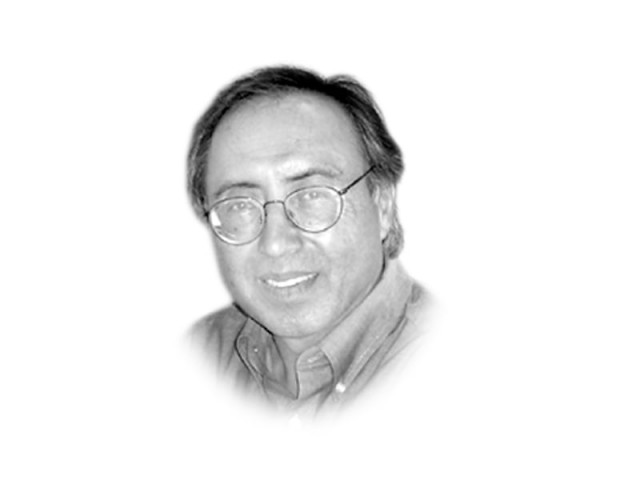What is in ideology?
The public has begun to weigh performance and problem solving and over patronage politics and ideological illusions.

The writer is professor of political science at LUMS
The question is, does ideology matter and if it does, where should one find the ideological script of a political party? In the post-communist world, there is only one ideological template that every nation-state, in every corner of the world has embraced — whether you agree with it or not. This is the ideology of free market economy — privatisation, deregulation and small government. Conventionally, it has been built on the foundations of democracy, individual freedoms and human rights. The democracy part of it is important in the global liberal agenda, but not a necessary condition for business, security and strategic engagements.

Living in a world of liberal ideological hegemony, every major world actor, state and party has conformed to the core ideas of market economy. A summary look at the manifestoes of the political parties of Pakistan would make it clear how faithfully they have accepted the free enterprise system.
There is no other way of understanding ideology except in its economic manifestation — who controls the economy and how its benefits are distributed in society. The way the economy is organised will also shape the social attitude, values of work and benefit and, eventually, the political outlook of the society resulting into representative government. On this count, every political party of Pakistan is on the same page — the only difference is the old labels that don’t matter.
Within this ideological framework, we may discern liberal or conservative inclinations. The reason I would refer to them as mere inclinations is that they don’t make any fundamental or even significant departure from the market economy. We may, however, discern differences among the mainstream political parties on social issues and distributive effects of economic growth. In this respect, I would like to place the ANP and the PPP in the liberal category by their political heritage, if not by the contemporary mindset of the leaders.
Sadly, according to Dr Grace Clark, Dean of Social Sciences at FC College, “the Pakistan liberals have given a bad name to liberalism”. Liberalism without positive content of integrity, honesty, honouring trust of the poor and service to the community is fake and pretentious. Pakistani power groups are not alone in faking liberalism for selfishness and licenced, systematic robbing of society.
The two parties that have won the popular mandate, the PML-N and the PTI, have a conservative market economic agenda and a conservative position on social issues. The PTI is more on the left of the centre than the PML-N. We have yet to see how it will go about balancing economic growth with distribution to the poor.
The real change in view is in the non-ideological orientation of the Pakistani voters. The rival ideologies of ethnic nationalism and Islamic state rank much lower in the political preferences of the voters than in the past. We see a positive trend in the pragmatic attitudes of the public that has begun to weigh performance, problem solving and real issues that concern them. The patronage politics, elite networks and ideological illusions may gradually lose their power and influence.
Published in The Express Tribune, May 28th, 2013.















COMMENTS
Comments are moderated and generally will be posted if they are on-topic and not abusive.
For more information, please see our Comments FAQ